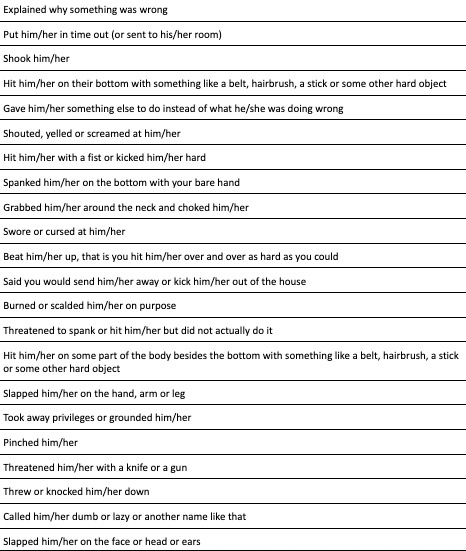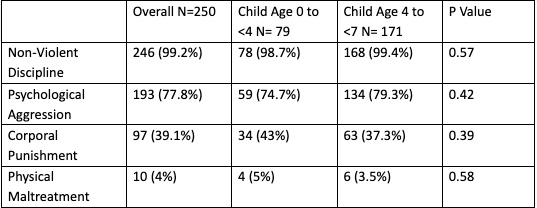General Pediatrics
Session: General Pediatrics 2
242 - Discipline Approaches Utilized by Low-Income Parents of Children with Special Health Care Needs
Friday, May 3, 2024
5:15 PM - 7:15 PM ET
Poster Number: 242
Publication Number: 242.133
Publication Number: 242.133

Brianna Dillon, MD (she/her/hers)
Pediatric Resident Physician
Hasbro Children's Hospital at Rhode Island Hospital
Providence, Rhode Island, United States
Presenting Author(s)
Background: Harsh discipline is associated with an increased risk of child maltreatment and child behavioral concerns. The American Academy of Pediatrics (AAP) recommends that pediatricians counsel families on positive discipline strategies and states that caregivers of children with special health care needs (CSHCN) may benefit from additional guidance
Objective: To better understand the discipline approaches used by parents of CSHCN, with an eye towards tailoring guidance and support for families in the primary care setting.
Design/Methods: We conducted a cross-sectional analysis of baseline data from an IRB-approved randomized controlled trial. Data were collected between 2017-2019 from 250 low-income English or Spanish-speaking parent-child dyads. Each dyad included a child under age 7 with a chronic physical, emotional, or behavioral condition and no history of maltreatment. We examined participant characteristics and parent-reported discipline approach as measured by the validated Parent-Child Conflict Tactics Scale (Figure 1). We compared discipline approaches reported for children aged 0 to < 4 vs. 4 to < 7 using chi-squared tests.
Results: The participant characteristics are presented in Table 1. Of note, 39% of caregivers were single parents, 22% had moderate depressive symptoms, 34% had difficulty paying their heating bill, and 21% had food insecurity. The majority (99%) reported using nonviolent discipline; 78% also reported ever utilizing psychological aggression, 39% ever using corporal punishment, and 4% ever using punishment concerning for maltreatment (Table 2). There were no significant differences between approaches used with younger vs. older children. Among those who reported using each approach, nonviolent discipline was used a mean number of 44 times in the prior year (SD 28) and psychological aggression a mean number of 11 times (SD 16).
Conclusion(s): While nonviolent discipline use was common, most families used several approaches, including harsh verbal and physical punishment. Clinicians often focus on the importance of positive parenting and avoiding physical discipline, yet there may be missed opportunities to ask about the use of harsh language. Clinicians caring for low-income families with CSHCN should also understand the high prevalence of household stress including parental depressive symptoms and unmet material needs. Future research will focus on identifying clinic and community-based interventions that increase household support, decrease parent stress, and further decrease the use of harsh discipline.


.jpg)
